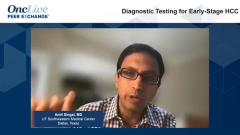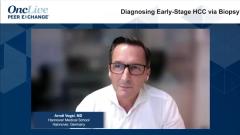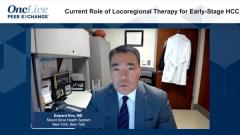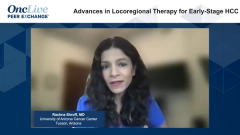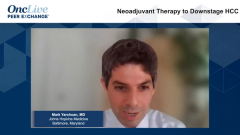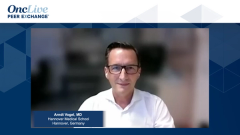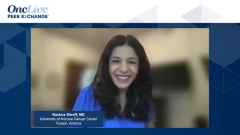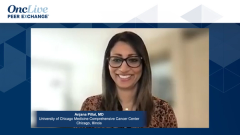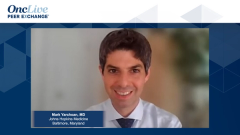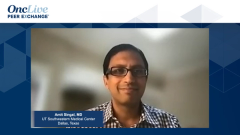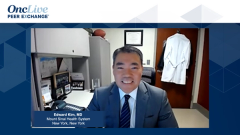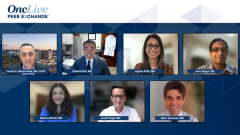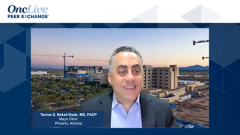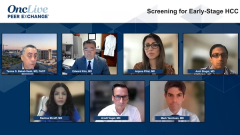
HCC: IO in Liver Transplant Recipients
A debate regarding the appropriateness of immunotherapy following liver transplantation in patients with hepatocellular carcinoma.
Episodes in this series

Arndt Vogel, MD: Can I ask one question? We briefly touched on the role of IO [immunotherapy] in the setting of liver transplantation. This is something we have to discuss at some point a little bit, and we are just writing a statement here in Germany. We looked at all the data, and there’s hardly any data, as you know, but what is also obvious is not all patients experience rejection. There was this report from the Mayo Clinic that if you used it before transplantation, none of 8 patients had rejection after transplantation, which was surprising. My question to you would be, in which setting would you consider IO, before or after transplantation? I think after transplantation, if you have used all other drugs…rejection rate of around 30% to 40%, so we discuss it with our patients. But there are some reports of nice responses without rejection. How do you do in the States? Do you use it always? Are you more cautious? What is your approach?
Tanios S. Bekaii-Saab, MD, FACP: Incredibly cautiously. Mark, you want to say something about this? And Anjana, I want you to also comment on this after Mark, please.
Mark Yarchoan, MD: In the pretransplant setting, this is something that should really be done in the context of a clinical trial. After transplant, the truth is that the response rate to PD-1 as a monotherapy in any patient with HCC [hepatocellular carcinoma] is pretty low. It’s a drug of last resort that I’d use in that population. I’ve done it very cautiously in a couple of patients. I’ve not had great success in my own practice, but we need more data.
Tanios S. Bekaii-Saab, MD, FACP: Anjana?
Anjana Pillai, MD: I agree with that. In the pretransplant setting, it is worthwhile to figure out in which patients can we use these medications. In that Mount Sinai study that you’re quoting, it was nivolumab, but as close as even several days before transplant. That’s great that no one had rejection. It shows that we can do it, but we still need to have a more defined time, the half-life of nivolumab being 20-something days, but we’ve seen rejection in other studies. There were case reports in American Journal of Transplantation, oncology journals, years after transplant, with rejection. We don’t know who we can safely use it in. That is very important to tease out in a trial fashion. Post-transplant, I agree with Mark, I have not used single-agent PD-L1s in any of our patients. There are not enough data to warrant the risk of rejection, and once they reject and they already have cancer, what are we going to do with these patients? We tend to use more aggressive locoregional therapy, or if things can be resected—local recurrence often can be resected if caught early. And then a systemic chemotherapy, but not yet checkpoint inhibitors in my practice, post-transplant.
Arndt Vogel, MD: I completely agree. I think we’re also extremely cautious, and we’d only do it as really last line, not any earlier transplant, of course.
Amit Singal, MD: The only thing that I would add is that many transplant centers, and I’m sure you guys are doing it in University of Chicago Medicine Comprehensive Cancer Center, we’re doing it in UT Southwestern Medical Center, are now establishing protocols. Coming into transplant, we say that someone can have received checkpoint inhibitors, but has to be off this immune checkpoint inhibitor for X period of months. To Anjana’s point, these protocols are essentially based on expert opinion right now, and there may be patients where you are making them wait longer than necessary. Based in the US, you could argue that you can easily do this for 3 to 6 months because people have to wait anyway for getting exception, etc. This is a good time for us to start having communications between medical oncologists and transplant hepatologists at each center because if it hasn’t come up already, it will almost inevitably come up soon. With the increased responses we’re seeing, there will be patients who there needs to be consideration for, is this patient now transplantable? And not just patients with liver-localized disease, but patients who had vascular invasion, people who had distant metastatic spread. At some point, you’re going to have to say, this patient has had a good enough response for X period of months and has been “adequately downstaged.” I don’t know what that period is, or how to assess it necessarily in the best way, but it’s a good time to have these discussions.
Tanios S. Bekaii-Saab, MD, FACP: Rachna, please.
Rachna Shroff, MD: It’s important to point out that, to Mark’s point about single-agent checkpoint inhibitors, even in the pretransplant setting, these are not response rates of 40%, 50%. The bigger question is actually going to be the combinations, and what can we safely give, and what those are going to look like. Monotherapy, yes, we don’t even know the answer to that question, but I don’t necessarily think that’s where we’re moving. The complications related to bevacizumab and the half-life of bevacizumab, and all of these, and these other VEGF TKIs [tyrosine kinase inhibitors], that’s going to add a layer of complexity that we can’t underestimate.
Amit Singal, MD: Rachna, not just the combinations of atezolizumab plus bevacizumab, or PD-1 and TKI, but also combinations that are being evaluated in the intermediate space, or adjuvant therapies. You’re talking about someone who had a resection, got postoperative immune checkpoint inhibitors, and has a recurrence. That patient is one we often transplant right now if they recur within criteria. This is where, when immune checkpoint inhibitors get scattered across the landscape, that’s where I’m saying, this is a train that’s coming, and we better be prepared to address this.
Transcript Edited for Clarity


